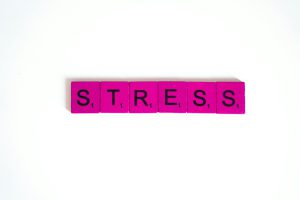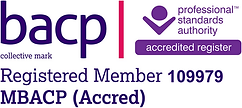So, you’re thinking about therapy. Maybe you’ve been mulling it over for a while, or maybe something happened that tipped the balance and made you think, “Alright, I need to talk to someone.” But then comes the hard part—actually reaching out. You can’t help wondering what does going to therapy feel like.
That First Step: The Email or Call
This is often the toughest part. Just staring at the phone or drafting an email and thinking; What do I even say?ÂYou might write it, delete it, rewrite it. Maybe you’ll even hover over the “send” button for an embarrassingly long time before finally pressing it.
And then the thoughts flood in: Am I making a big deal out of nothing? What if they think I’m overreacting? What if I can’t even explain what’s wrong? What does going to therapy feel like?
Let me reassure you—this is all completely normal. Therapists are used to that first, hesitant reach-out. We know that even typing “Hi, I think I might need some help” can feel like a massive leap.
The First Call: What If I Sound Ridiculous?
If you’ve booked a call before an actual session, you might feel nervous picking up. There’s this weird moment where you think, What if they ask what’s wrong and I suddenly forget everything I wanted to say?
Good news—you don’t need to have all the answers. A therapist won’t expect you to show up with a neatly packaged explanation of what’s going on. The call is usually just a chance to see if you feel comfortable with them and to ask any questions you have. And if you do get emotional or trip over your words? That’s okay. That’s part of the process.
The First Session: Walking Through the Door (or Logging Into Zoom)
Meeting your therapist for the first time can be a mix of relief and anxiety. You might be thinking:
- What if they think I’m crazy?
- Am I going to cry in the first five minutes?
- What if I don’t know what to say?
- What if I overshare and feel weird about it later?
All of this is normal. Therapists have heard it all before, and we don’t judge. Honestly, we’re not sitting there thinking, Wow, this person is a mess. We’re thinking, Okay, how can I best support this person?
Most first sessions are just about getting to know each other. There’s no pressure to spill everything at once. You set the pace. You might walk out feeling lighter, or you might feel exhausted from opening up—either way is completely valid and normal.
What It Feels Like to Be Truly Listened To
For a lot of people, therapy is the first time they’ve felt really, really heard. No interruptions, no “Oh yeah, that happened to me too,” no one trying to fix things or tell you what to do. Just someone sitting with you, listening, and trying to understand.
It can be overwhelming. It can be a relief. It can feel strange. But over time, it’s something that helps you process things in a way you might not have been able to on your own.
The Pros and Cons of Therapy
Pros:
- A safe space to say things you might not tell anyone else.
- Gaining clarity on your thoughts and feelings.
- Learning practical tools to manage struggles.
- Being able to untangle the mess in your head with someone who isn’t emotionally involved in your life.
Cons:
- It can bring up tough emotions you weren’t expecting.
- Some sessions might leave you feeling drained.
- You might not “click” with the first therapist you try (which is okay and completely normal!).
What Should You Expect?
- Some weeks you’ll have lightbulb moments. Other weeks, you might feel like nothing is changing.
- You won’t always walk out feeling better immediately. Growth can be uncomfortable.
- You might laugh as much as you cry.
- Your therapist isn’t there to fix you because you’re not broken. They’re there to help you manage things differently.
How Will I Know When to Stop?
Therapy isn’t forever (unless you want it to be). Some people come for a handful of sessions, others for years. You’ll know it’s time to step back when:
- You feel like you’ve got the tools to manage things on your own.
- You notice you’re talking about the same things in sessions without much new insight.
- You just have a gut feeling that you’re ready to move on.
Final Thoughts
So if you have been wondering what does going to therapy feels like, I can tell you that therapy isn’t about “fixing” you. It’s about understanding yourself better, working through difficult emotions, and learning healthier ways to cope. The process isn’t always easy, but it’s worth it.
So if you’re hesitating, wondering if you should reach out—know that it’s okay to be nervous. It’s okay to be unsure. And it’s okay to take that first step even if you don’t know exactly where it will lead.
You don’t have to have it all figured out to start with. That’s kind of the point.
#what does going to therapy feel like.






